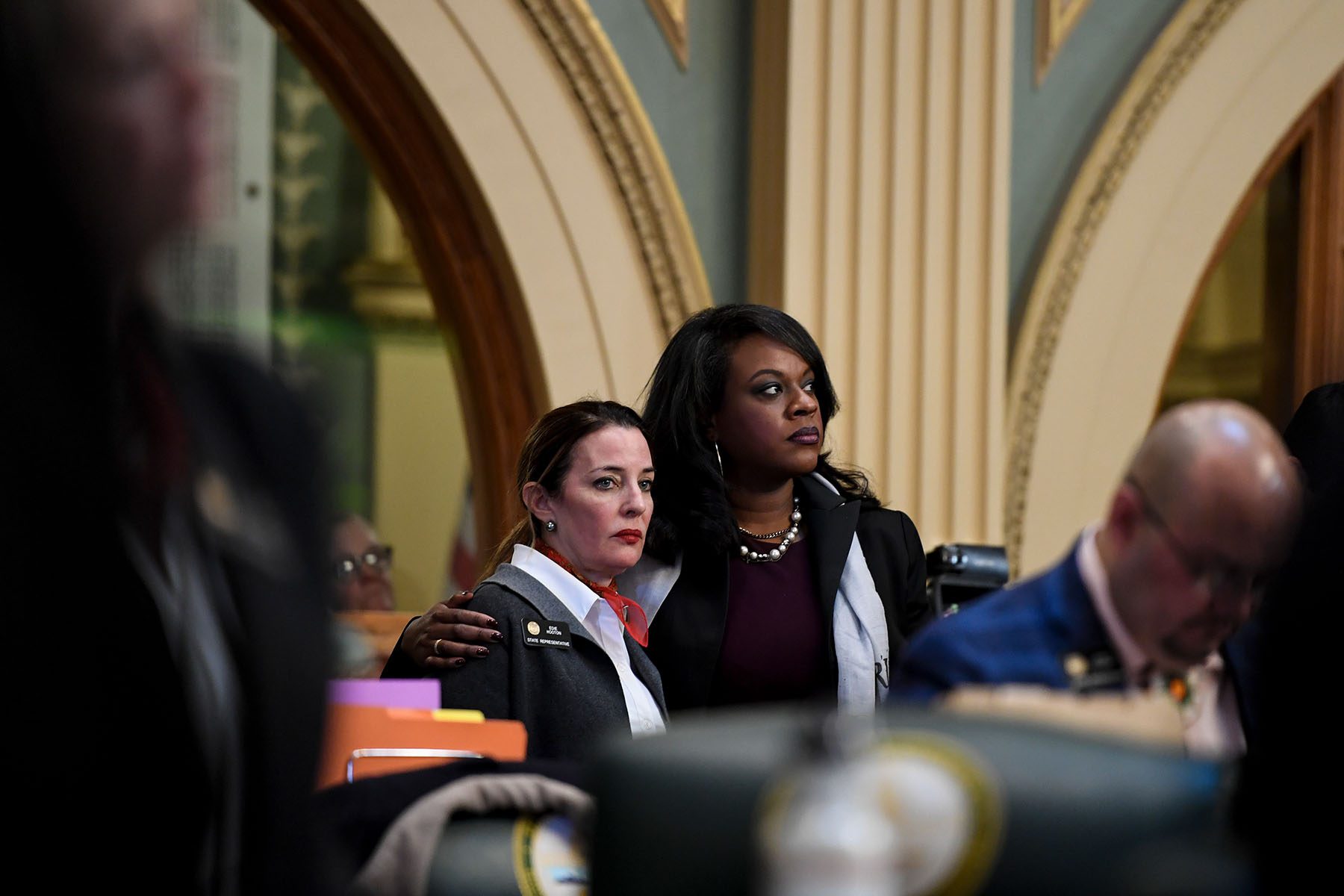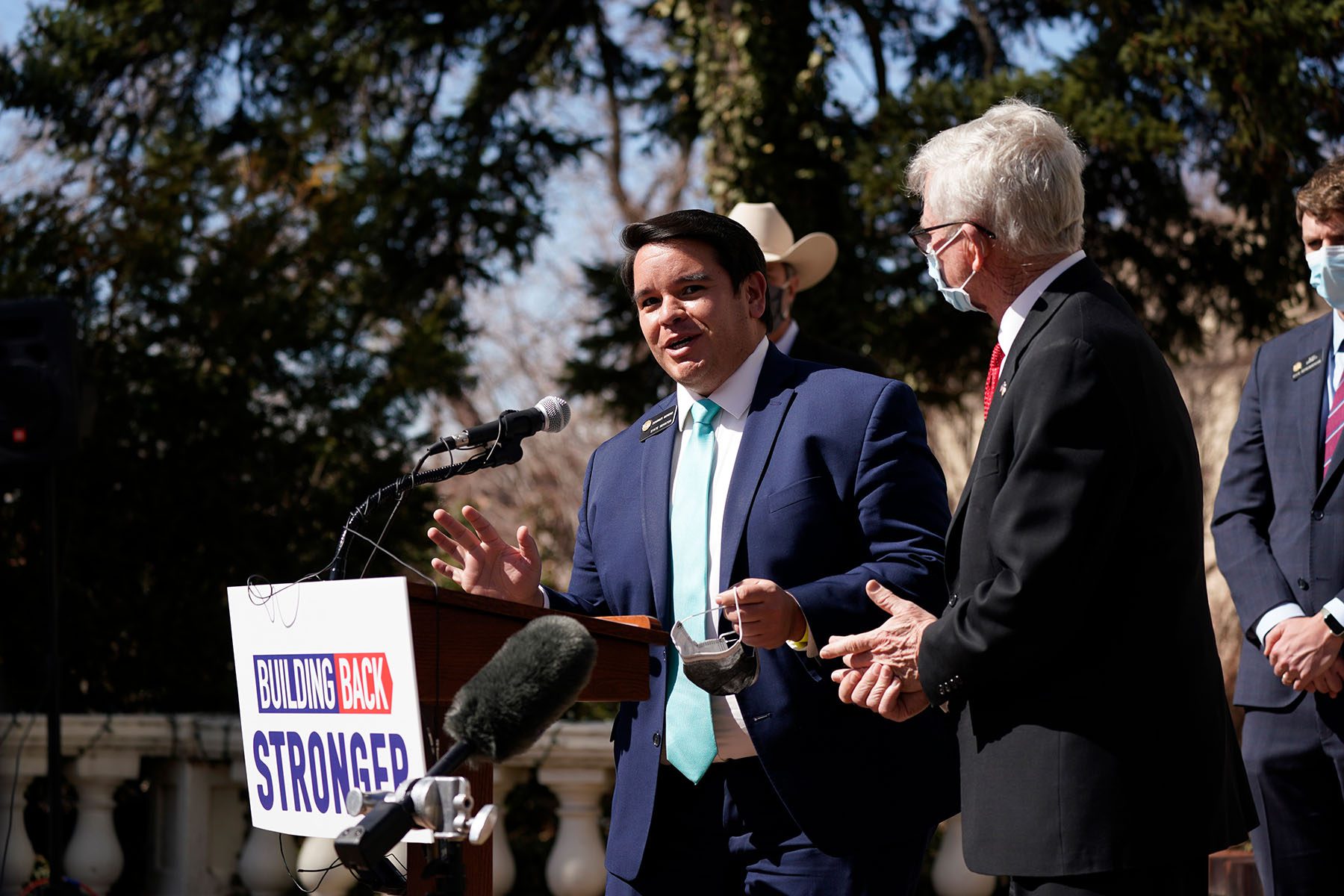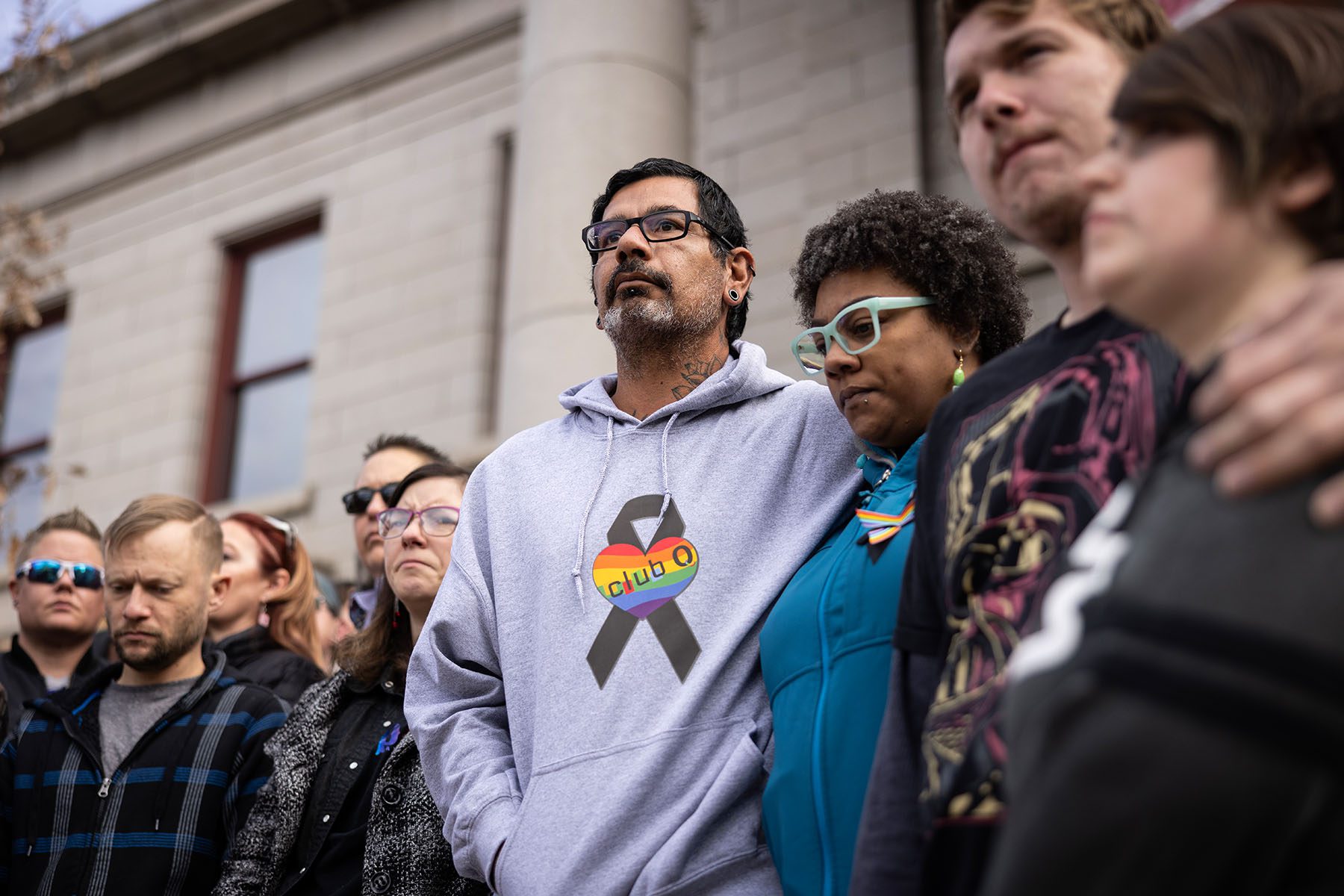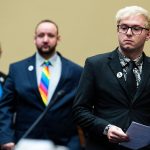Leslie Herod, the first out Black LGBTQ+ person elected to the Colorado General Assembly, spent a significant amount of time in Colorado Springs growing up. Moving frequently in a military family, she spent a year of elementary school, two years of middle school, and three years of high school in the Springs. After her mom retired there, she’d come home from college in Boulder for the holidays and spend time at Club Q.
She wasn’t alone in going to Club Q to meet old friends and make new ones. Herod remembers seeing people there who clearly went to the club to be with their chosen family during the holidays.
Being part of those shared moments has her worried about the people who survived the mass shooting at Club Q last month. Five people were killed, and at least 22 others were wounded. The club remains closed, and both the survivors and patrons who weren’t there during the shooting now have one less refuge during a time that can be especially stressful, or lonely, for LGBTQ+ people.
“This is the time when they need that space sometimes the most, when you’re with family over the holidays, they’re questioning when you’re getting married, why you don’t have kids, why you look the way that you look, why can’t you just be ‘normal.’ And you just want to tune that out a little bit and dance,” said Herod, a Democrat and state representative for Colorado’s District 8.
Herod is one of two LGBTQ+ lawmakers in Colorado who sat down with The 19th to discuss their policy priorities in the wake of the Club Q shooting, what the tragedy means to them and the importance of protecting queer community spaces.
The owner of Club Q plans to reopen the club and is eyeing another venue. But, Herod noted, some people may choose not to go back. Some may not even return to any queer nightclub for fear of being exposed to violence.
“I think when we think about survivors, it’s a pretty large group,” Herod said. She defined them as those who were there that night and the immediate families of the victims — plus club patrons who went once a month, or every few months. “They also are dealing with this tragedy, remembering how Club Q looks on the inside and then wondering what that looked like that night. Wondering … if you were there, what would have happened?”

Dominick Moreno, majority leader of the Colorado Senate and Democrat state senator for District 21, also spoke to The 19th about the shooting. He has spent time reflecting on how to foster more queer community spaces following the shooting — and having them in less traditional spaces, like rural and suburban areas.
“I think one of the ways that we can do that is by better supporting different organizations — for example, K-12 public schools. Because that’s when people are forming their identity, when they probably need services, resources the most,” he said.
In the wake of the shooting, Herod and Moreno are among lawmakers and advocates who want to reevaluate how effective Colorado’s gun laws are. In the state’s next legislative session, Moreno wants to prioritize legislation to rein in gun violence by banning assault weapons or raising the age required to buy them and enforcing the state’s red flag law.
Nineteen states including Colorado have passed such laws, according to the gun control advocacy group Everytown for Gun Safety. The laws, also known as “extreme risk” laws, enable law enforcement and family members to petition courts to temporarily revoke firearms from someone who presents a danger to themselves or others.
-
More from The 19th
- ‘These things don’t change’: Colorado Springs shooting comes 42 years to the day after 1980 anti-LGBTQ+ massacre
- Colorado Springs shooting brings even greater sense of devastation so close to Trans Day of Remembrance
- Two states have still never had an out LGBTQ+ person in their legislatures
The suspect, Anderson Lee Aldrich, who faces 305 criminal counts for the Club Q shooting, reportedly threatened their family with a homemade bomb last year and was arrested on those allegations. That history of violence has prompted lawmakers to question why the state’s red flag law was not used to seize Aldrich’s weapons before the Club Q tragedy took place.
Colorado’s Democratic governor, Jared Polis — the first out gay man to be elected governor in the United States — is also considering reforms to the state’s red flag law in response to the shooting, telling NBC’s “Meet the Press” that he wants to know why the law wasn’t used and ensure its use in the future.
An AP analysis found in September that many of the states with red flag laws rarely use them; awareness of the laws may play a factor. In states including like Colorado, counties that oppose laws infringing on gun rights may also enforce red flag laws less aggressively, the AP reported.
The two lawmakers spoke about the resources that survivors would require. LGBTQ+ people in Colorado and Colorado Springs need better access to affirming and competent mental health services, Herod said, especially to deal with the trauma of a mass shooting —a point advocates in the state had previously made to The 19th. Moreno said he would consider pushing for legislation to expand access to mental health care at low or no cost.
Herod and Moreno also shared concerns aired among shooting victims from Colorado and Pulse survivors from Florida on how money is collected and distributed by the Colorado Healing Fund — a resource promoted by national and state LGBTQ+ organizations after the Club Q tragedy. Survivors last month criticized the fund for taking a cut of donations for administrative fees and sending donations to local nonprofits.
The Healing Fund does not send checks directly to victims or their families and instead delivers money to other nonprofit organizations, like the Colorado Organization for Victims’ Assistance, where victim advocates identify needs and then write the checks, said Jordan Finegan, executive director of the fund. The fund receives proof of how the money is spent to support that survivor, their family or the families of those killed, she said.
Finegan said that she talks directly with victim advocates or with the victim advocate coordinator with the Colorado Springs Police Department. But, the fund has been looking for a new nonprofit group to send donations through that is not linked to law enforcement — a change the fund is making due to understanding that LGBTQ+ people do not necessarily want to engage with the police, Finegan said. That search will hopefully be finished by the end of the week, she said, and was undertaken with input from local LGBTQ+ groups.

Herod, who had spoken with Finegan prior to the fund’s recent policy changes, noted that some people don’t want to find community support with law enforcement involved — especially in communities where some feel the police are transphobic or homophobic.
The fund has sent $220,000 to go toward victims’ families and those injured in the shooting. Another $150,000 has gone toward funeral arrangements, car payments, rent, lodging and plane tickets for family traveling to memorials. It also announced Tuesday that administrative fees will be waived for all past and future Club Q donations, due to anonymous donors covering most expenses needed to send funds.
“We’re all in the middle of immediate response right now, and trying to get as many needs met and people supported as possible,” Finegan said. Although the fund is currently collecting donations for only six months, facilitating those funds to the community may take one to three years.
LGBTQ+ lawmakers in Colorado also face a long road ahead — in terms of processing the tragedy, and in implementing policy to try to prevent another shooting, or to at least have more resources ready when the next one comes.
“There was shock and grief when I heard the news,” Moreno said. “Having been in elected office for about 13 years, my method of coping is translating that into policy. … It’s definitely like, I don’t want to sit with how I actually feel about it, so instead I’ll start to work and try to figure out how we prevent it the next time.”
Having more LGBTQ+ lawmakers in the state may make that process easier. After the midterms, Colorado has the largest LGBTQ+ caucus it has ever had — including Stephanie Vigil, the first LGBTQ+ person elected from Colorado Springs — making Moreno optimistic about what the group of 12 members can accomplish next year. The caucus plans to gather later this month, he said.
Correction: An earlier version of this article implied that Colorado Gov. Jared Polis is the first out LGBTQ+ person elected governor, not the first out gay man elected governor.







